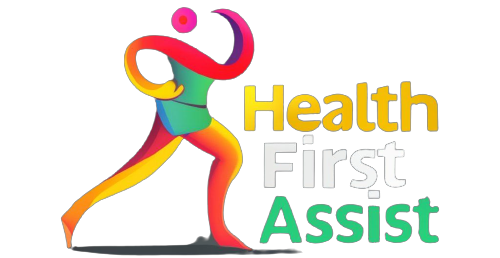Life today is full of stressors that can leave us feeling frazzled, anxious and overwhelmed. Taking time to consciously relax is crucial for both mental and physical health. Meditation has emerged as one of the most effective relaxation practices – its calming benefits are supported by extensive research.
As a psychiatrist and long-time meditation practitioner, I’ve seen first-hand how taking even a few minutes during the day to meditate can induce a state of deep rest, helping dissolve stress and cultivate tranquillity. There are many simple meditation techniques beginners can learn for relaxation. Here is an overview of how meditation engenders relaxation, along with guidance for getting started.
Meditation helps relieve stress by eliciting the relaxation response – essentially activating the body’s own natural healing abilities.
— Dr. Herbert Benson, Harvard physician who coined the term “relaxation response”.
Why Meditation Calms the Mind and Body
Meditation acts as a powerful antidote to the modern-day stresses of work deadlines, traffic jams, family obligations, financial worries and ubiquitous technology. Practicing meditation triggers the relaxation response, defined by Harvard researcher Dr. Herbert Benson as an opposite physiological state to the fight-or-flight stress response.
On a biological level, meditation has been shown to:
- Lower blood pressure, heart rate, and breathing rate
- Reduce blood cortisol, adrenaline, and other stress hormones
- Increase relaxation-inducing neurotransmitters like GABA
- Alter gene expression related to inflammation and stress
- Generate synchronized brain waves associated with deep relaxation
Psychologically, meditation cultivates relaxation by:
- Focusing attention away from stressful thoughts and mental chatter
- Reducing rumination and overthinking
- Promoting acceptance of circumstances outside your control
- Enhancing emotion regulation abilities
- Heightening self-awareness and resilience
Making meditation a daily habit provides a source of calm and balance amidst life’s turbulence.
“Making time to meditate each day provides a buffer against stress. Even 10 minutes can bring significant calm.”
— Jon Kabat-Zinn, PhD, founder of mindfulness-based stress reduction.
Different Types of Meditation
There are many meditation styles that induce relaxation. Here are some of the most popular and accessible for beginners:
- Mindfulness meditation – Sitting quietly while focusing attention on your breath or a mantra. When thoughts intrude, gently return focus to the breath without judgement. This creates calm.
- Body scan – Systematically relaxing each part of the body by focusing attention on physical sensations while breathing slowly. Tensing and releasing areas of tightness enhances relaxation.
- Walking meditation – Slowly walking, ideally in nature, while paying close attention to the physical sensations of each step and breath. Calms the mind.
- Guided meditation – Listening to a guided audio or app that leads you through a relaxation sequence using music, nature sounds or spoken instruction. Helps quiet mental chatter.
- Loving-kindness meditation – Wishing wellness and ease for self and others. Fosters compassion while soothing anger or resentment.
- Transcendental meditation – Silent meditation using a mantra to settle the mind. Studies show it reduces anxiety and depression.
- Yoga nidra – Lying in deep stillness while a teacher uses verbal guidance to lead you through stages of complete bodily relaxation. Elicits very deep calm.
Cultivating mindfulness through meditation strengthens the areas of the brain responsible for emotion regulation, resilience and relaxation.”
— Sara Lazar, Ph.D, neuroscientist studying meditation.
Creating a Meditation Practice for Relaxation
Making meditation a consistent daily ritual is key to experiencing its cumulative calming benefits. Here are some best practices to start a relaxing meditation practice:
- Schedule time – Set aside 5-10 minutes in the morning and in the evening for meditation. Many find first thing in the morning and just before bed to be ideal times.
- Find a quiet space – Choose a spot free of distraction where you can meditate undisturbed. Turn off phones and screens. Keep lighting soft.
- Get comfortable – Sit or lie in a position you can hold for the duration. Cushioning for sitting helps. Loose, layered clothing prevents distraction.
- Focus attention – Gently bring attention to an anchor – the breath, a mantra, or part of the body. Returning focus here when the mind wanders trains concentration.
- Start small – Begin with just 2-5 minutes if needed. Increase time with consistency. Even brief meditation has relaxation benefits.
- Be consistent – Make meditation a habit by practicing daily at set times. Missing days can disrupt momentum.
- Let go of expectations – Don’t worry about “doing it right.” Without judgement, return to your anchor when distracted. There are no meditation grades.
- Apps like Headspace, Calm, and Insight Timer provide guided meditations and music/sounds to facilitate relaxing at home or on the go. Yoga studio or meditation center classes offer community support.
A regular meditation practice helps you respond to challenges versus reacting. Instead of anxiety, you experience calm and clarity.
— Deepak Chopra, MD, an author and meditation proponent.
Meditating During Stressful Situations
Once you’ve established a home meditation practice, you can apply mindfulness techniques during stressful situations for on-the-spot relaxation:
- Before a stressful event – Briefly meditate to calm nerves. Focus on taking slow deep breaths.
- While commuting – At a stoplight or when not needing to focus intensely, pay attention to your breath. Relax tense muscles. Return to driving with less road rage.
- On a break at work – Sit quietly and focus all your attention on your inhale and exhale for 1-2 minutes. Hit reset.
- In a waiting room – Close your eyes and do a body scan, progressively relaxing each part of the body from toes to head.
- Before bed – Unwind with 5 minutes of gentle yoga, meditating on the stretch sensations. Release the day’s tension.
With some creativity, even small snatches of mindfulness meditation can cultivate oases of relaxation amidst the busyness of life. The benefits multiply with regular practice.
Meditation techniques like body scans, visualization and mantras can induce deep states of relaxation and healing.
— Tara Brach, PhD, psychologist and meditation teacher.
Signs Your Meditation Practice is Working
Here are some signs you can look for to know your regular meditation habits are effectively cultivating relaxation:
- Feeling calmer, clearer and more focused throughout your day
- Handling stressful situations with more ease and emotional resilience
- Falling asleep more quickly and sleeping more soundly
- Experiencing fewer tension headaches or muscle aches from stress
- Feeling more patient and less reactive in challenging situations
- Having an easier time disconnecting from technology and entertainment
If meditation feels like a struggle at first, stick with it. The sense of peace and renewal it provides becomes more apparent over time. When you slip in your routine, just restart a daily practice. Consistency is key.
Key Takeaways on Meditation and Relaxation
- Meditation counters stress by eliciting the relaxation response – lowering heart rate, blood pressure, stress hormones, and nervous system activity.
- Mindfulness, guided, transcendental, loving-kindness and body scan meditations are beginner-friendly relaxation techniques.
- Starting with just 5 minutes twice daily, ideally at the same time each day, establishes a sustainable meditation practice.
- Apps, classes and studios provide guided meditations and community support.
- Brief mindfulness techniques during stressful moments generate quick calm throughout the day.
- Regular meditation helps you better manage stress long-term by boosting emotional resilience.
- Noticing positive changes like better sleep, focus and coping skills means your meditation practice is effectively cultivating relaxation.
References of Meditation for Relaxation
Related Topics
- Improving Self-Esteem: A Guide to Build a Good Inner Self
- Depression Symptoms: Indicators and Warning Signs
- OCD Obsessive Compulsive Disorder
- Lose Weight Fast: Warning and Proven Methods
- Anxiety Disease Uncovered: Insights and Solutions for Mental Well-Being
Cardio FLEX Reviews: Unveiling the Truth about Cardiovascular Health Support
Cortexi Reviews – Unveiling the Power of the Ultimate Nootropic Formula
Gluconite Review – A Comprehensive Analysis of Safety and Effectiveness
Ikaria Lean Belly Juice Reviews – The Ultimate Weight Loss Solution
Java Burn Reviews: A Revolutionary Approach to Boosting Metabolism
Liv Pure Reviews: to Achieve Your Weight Loss Goals
ProDentim Reviews: Solution for Dental and Gum Problems
Puravive Reviews: A Detailed Analysis of Discovering the Essence
Quietum Plus Reviews: Unlocking the Secrets to Optimal Ear Health and Clear Hearing
Sugar Defender Reviews: The Importance of Blood Sugar Management
Sumatra Slim Belly Tonic Reviews: Discover its Power for Healthy Weight Loss

